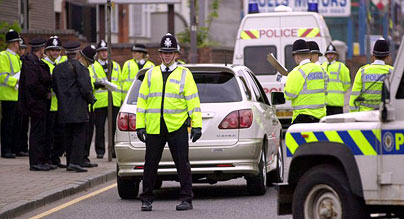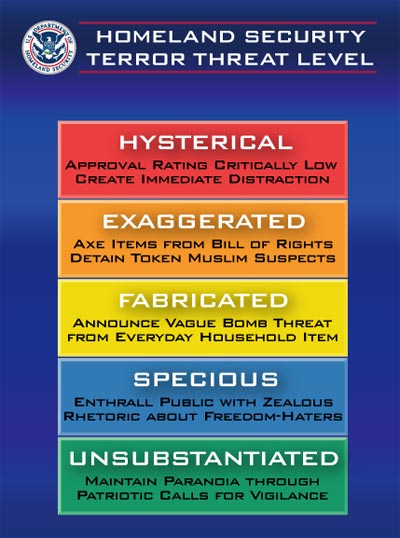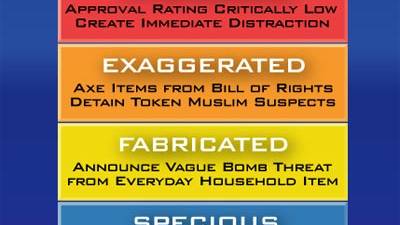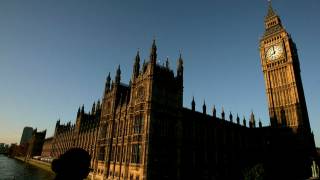Britain raises terror threat level to "severe"
Source: reuters.com

"Britain raised its terrorism threat level to 'severe' -- the second highest level -- on Friday, days before London hosts major international meetings on how to deal with militancy in Afghanistan and Yemen."
The decision to raise the level from 'substantial' means security services now consider an attack in Britain, a key U.S. ally, to be "highly likely" but the government said it had no information to suggest an attack was imminent.
Britain gave no reason for the move by its Joint Terrorism Analysis Center (JTAC) which comes as Britain and other countries step up precautions in the wake of the failed Christmas Day attack on an airliner in Detroit.
Raising the threat level is expected to lead to tighter security at airports and public buildings.
"JTAC keeps the threat level under constant review and makes its judgments based on a broad range of factors, including the intent and capabilities of international terrorist groups in the UK and overseas," Home Secretary (interior minister) Alan Johnson said in a statement.
"The fact that we've moved to another threat level means we put more resources in, we heighten the state of vigilance. It shouldn't be thought to be linked to Detroit or anywhere else for that matter," he told the BBC.
Security expert Anthony Glees said his guess was that the decision to raise the threat level was linked to the Afghanistan conference and to intelligence from the United States.
"I think it's very probable that people, either members of al Qaeda or associated to al Qaeda, will be figuring that it would be a huge trophy attack in some way to damage the holding of the Afghanistan conference," he told the BBC.
The threat level was last changed on July 20, 2009 when it was lowered to substantial from severe. It had been lowered to severe on July 4, 2007 from critical, the highest level, which had been declared a few days earlier following attempted car bombings in London and Glasgow.
Suicide bombings in July 2005 killed 52 people on London's transport networks and a number of plots have been thwarted since then.
MAJOR CONFERENCE
Britain hosts an international conference on Afghanistan on Thursday that London says may set a timetable for transferring responsibility for some areas to Afghan control.
Afghan President Hamid Karzai, U.N. Secretary-General Ban Ki-moon, NATO Secretary-General Anders Fogh Rasmussen and foreign ministers from 50 countries are expected to take part.
Talks on Afghanistan will be preceded by a January 27 meeting on Yemen, which declared war on al Qaeda last week under pressure for a crackdown on the global militant group after its Yemen-based wing said it was behind an attempt on December 25 to blow up a U.S. passenger jet.
The Nigerian suspect in the Detroit airliner plot, Umar Farouk Abdulmutallab, studied a few years ago in London, raising concern about whether he was radicalized in Britain.
Prime Minister Gordon Brown told parliament this week Britain was suspending direct flights to Britain by a Yemeni airline and was stepping up immigration checks in the wake of the failed Detroit attack.
"We know that a number of terrorist cells are actively trying to attack Britain and other countries," Brown said.
Sajjan Gohel of the Asia Pacific Foundation thinktank said one factor that affected threat level changes was security agencies' monitoring of electronic "chatter" among militants.
"It may be that Britain is being mentioned more often or it may be the volume of potentially threatening messages being collected that provides a sense of heightened threat," he said.
U.S. Homeland Security Department spokesman Matt Chandler said Britain was raising its measures to effectively where the United States was.
"We have enhanced our security measures and communicated specific information to industry, law enforcement and the American people," he said.
Article from: Reuters.com
There are five levels of threat:
* Critical - an attack is expected imminently
* Severe - an attack is highly likely
* Substantial - an attack is a strong possibility
* Moderate - an attack is possible but not likely
* Low - an attack is unlikely























